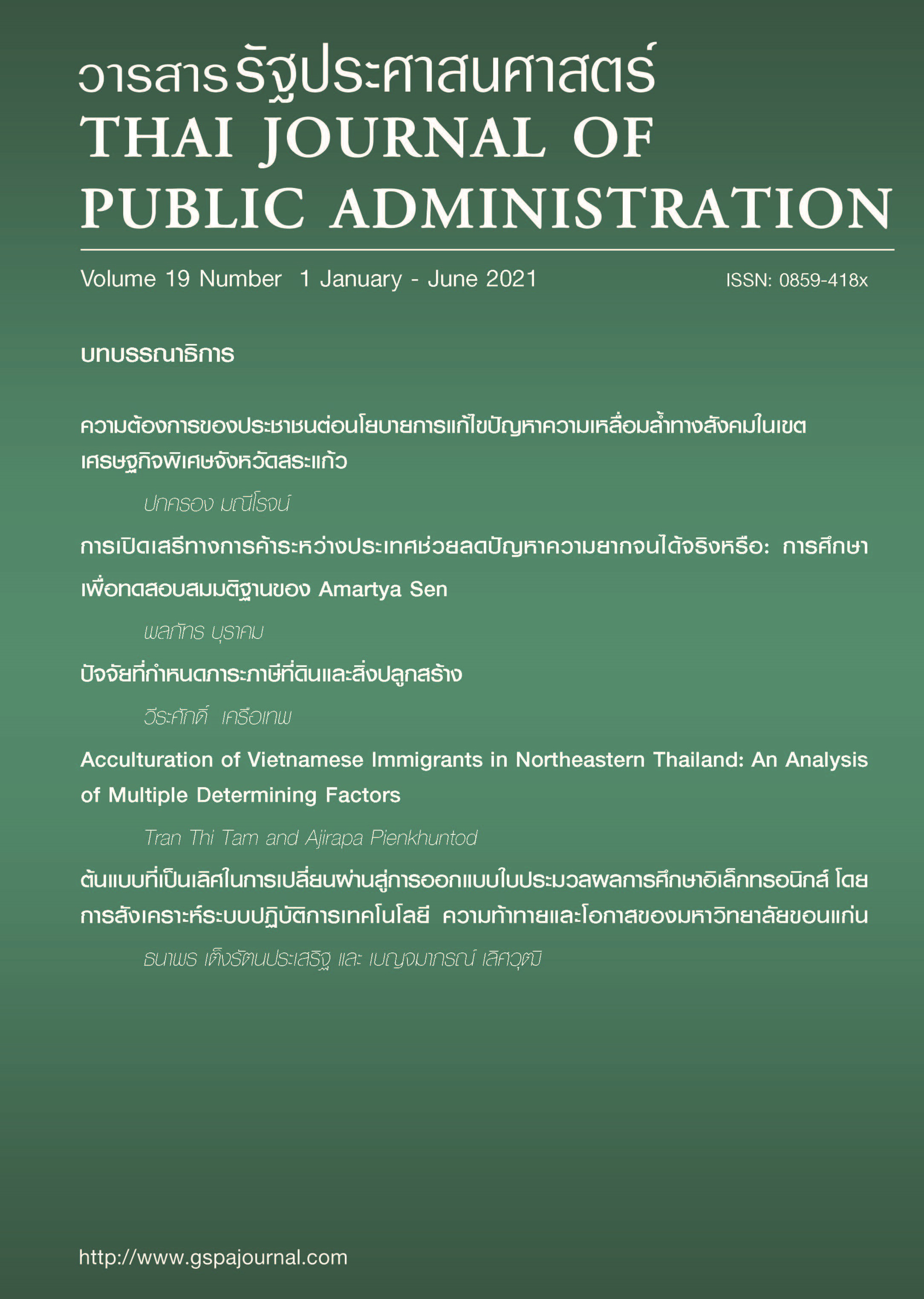Does Trade liberalization Help Reduce Poverty? : A Test of Amartya Sen’s Hypothesis
Keywords:
international trade, poverty, income distribution, developing countriesAbstract
Mainstream international trade theories, such as Heckscher-Olin and Stolper-Samuelson, indicate that international trade increases the use of the factors of production more intensively and thereby can stimulate economic growth, employment, and a reduction in poverty. A vast number of developing economies are now more open for free international trade. However, the question is does trade liberalization help reduce poverty in developing countries? By using the multiplicative interaction model and interactive term, the findings from this study lend support to Amartya Sen’s hypothesis that the positive relationship between international trade and improved poverty is conditioned upon more equitable distribution of income. That is, in more unequal economies, increasing international trade tends to minimally improve the well-being of the poor or exacerbate poverty. The findings, therefore, imply the need for policy-makers in the developing economies to pay special attention in reducing inequality in income distribution. Trade liberalization will not improve the well-being of the poor, if the poor cannot get access to the economic opportunities associated with liberalization



